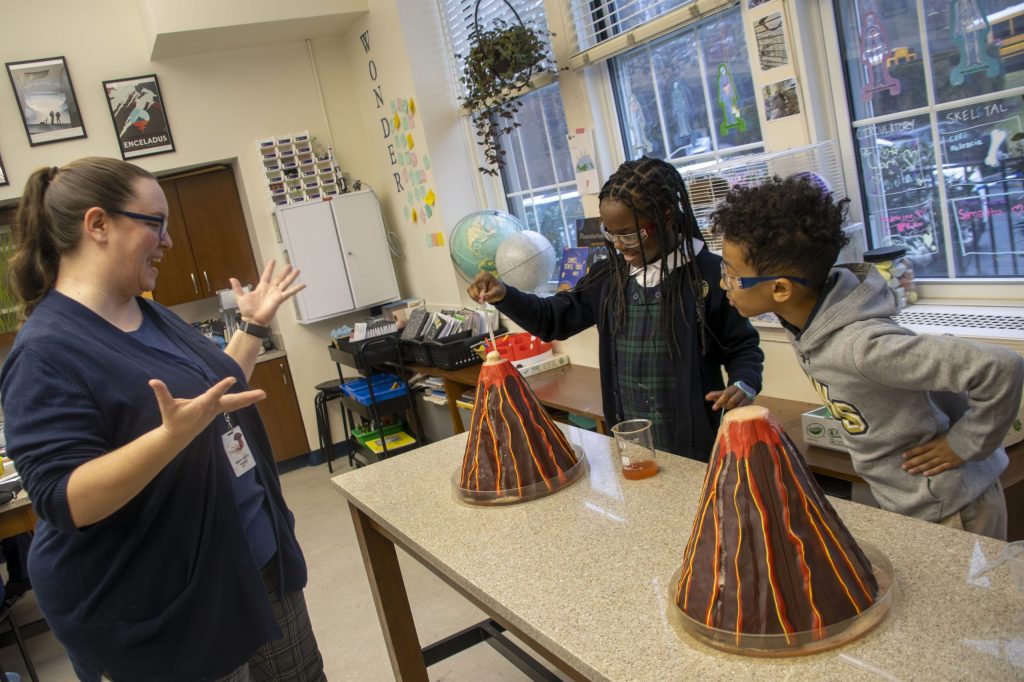Looping at Oak Knoll: A Forward-Thinking Approach to Teaching
 In a guest opinion essay for the New York Times entitled “What Most American Schools Do Wrong.” Dr. Adam Grant, an organizational psychologist at the Wharton School of the University of Pennsylvania, writes, “Most parents see the benefit of keeping their kids with the same coaches in sports and music for more than a year. Yet the American education system fails to do this with teachers, the most important coaches of all.”
In a guest opinion essay for the New York Times entitled “What Most American Schools Do Wrong.” Dr. Adam Grant, an organizational psychologist at the Wharton School of the University of Pennsylvania, writes, “Most parents see the benefit of keeping their kids with the same coaches in sports and music for more than a year. Yet the American education system fails to do this with teachers, the most important coaches of all.”
Though the American education system is failing to reap the benefits of “looping” — allowing teachers of core subjects to work with the same student for two or more years — Oak Knoll is ahead of the curve. Looping is a crucial element in all aspects of our Lower School schedule from grades one to six.
Students remain with the same math, social studies, and religion teachers for two consecutive years throughout Lower School and with the same science teacher for all years beginning in grade three. This means their teachers have more time to get to know the student’s learning needs individually, and they need less time to adjust to a new cohort of students each year.
As Grant notes in his well-researched article, “Every child has hidden potential. It’s easy to spot the ones who are already sparkling, but many students are uncut gems. When teachers stay with their students longer, they can see beyond the surface and recognize the brilliance beneath.” This is especially critical in Lower School, where students are gaining attachment to the whole process of teaching and learning.
Not only are Oak Knoll teachers forging deeper connections with their students through looping, but they are also forging better connections with parents over time, which leads to better communication and more adaptive teaching techniques. For example, a single teacher during a second year of math probably now knows students well enough to incorporate into math lessons references to individual student hobbies and interests such as sports, pets, or cartoon characters. Making real-world connections for students when teaching content is easier when teachers have more time to get to know individual students.
Alluding to a significant additional benefit of looping, Lower School Division Head Christine Spies notes, “Children who have strong relationships with their teachers take more risks and challenge themselves more, as they know their familiar teacher is there to support them, even when they make a mistake. They are willing to step outside themselves and feel confident in asking questions and sharing ideas. Students who loop for two or more years with their teacher in Lower School are confident learners who feel secure in their learning and classroom environment, resulting in success in their academics and a strong sense of well-being.”
A lifelong love of learning begins with the early relationship young children have with their teachers. That better connection to teachers blossoms into a better connection to core subject matter. That better connection to core subject matter leads to better outcomes in middle school, high school, and college. Looping is just one more reason discriminating parents make Oak Knoll Lower School their primary choice among private schools in the area.






